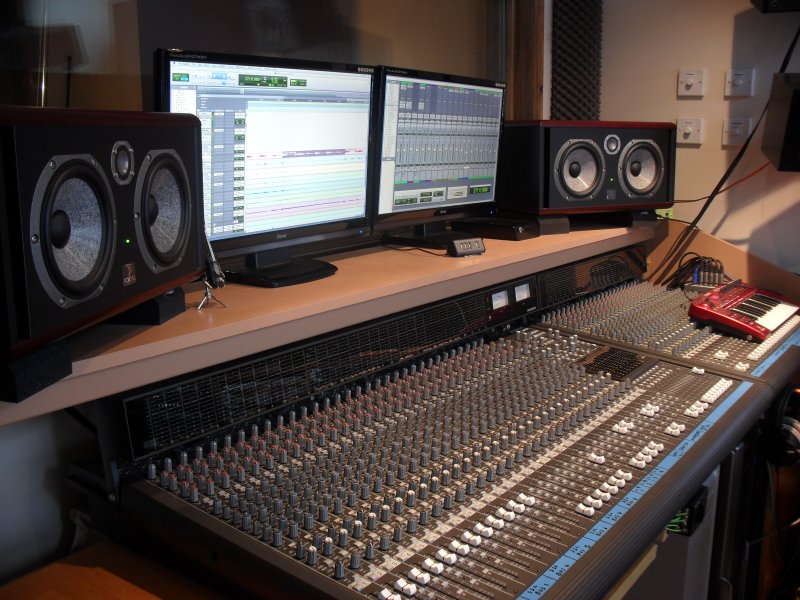Before getting into the finer details of how to record the demo that could get you or your band noticed, it is worth clarifying that people record demos for all kinds of reasons. It could be that you want something to give away or sell at gigs, you might want to send a voice recording demo in the hope of a career in oration or voiceovers. Or, you or your band could be hoping to record a high quality, professional demo to send to record labels across the country in the hope of a label contract. While this article will be skewed towards the latter, there are many universal rules that anyone recording a demo of any kind would do well to follow.
Preparation is key
It’s difficult to overstate the importance of preparation when it comes to the task of recording a demo that best reflects the passion, skill and creativity behind your music. By being well prepared for your session, whether it be in a professional recording studio, a mate’s garage or a borrowed school hall, the same mantra applies – be prepared. By making sure you’ve practiced the material, fired yourself up, ensure everyone turns up on time and have all your gear ready you will maximise costly time in the studio or if going DIY get yourself in the correct mind-set to do your very best. There should be no guitar left un-tuned, no strings needing replacing, no pedals forgotten and heaven forbid you should turn up without the relevant cables. If you are in a studio call in advance (well in advance) to establish what they provide and what you need to bring yourself. If you are using an engineer make sure that he has listened to your material and understands the desired result. Having everyone pulling in the same direction is vital.
If you are a band that plays live, it would be a great idea to try recording as you play on a phone or tablet so that you can sit down and listen through before you go into a studio. You can never understand your strengths and weaknesses nor those of your songs until you do this. While you are playing, the adrenaline can give material an added boost, but remember this is not felt by the listener or the record label executive! You might feel that some added layers or dimensions could beef up the material for recording purposes.

Wear your passion on your sleeves
Believe me the record label bosses will receive countless demos that are proficient, professional and well recorded, but ultimately bland. The way to stand out is by having interesting, unusual and unique material on top of all of those previously mentioned traits and also by conveying a sense of almost primal passion to the listener. You’ve written songs about heartache? Make the listener cry as if it were their own heart being torn apart. You’ve written death metal songs? You want the listener to feel the grime of crawling through a swamp full of cadavers. Whichever end of the spectrum you are you simply have to convey a strong emotional connection to the material.
Write down or hum interesting riffs
There is no substitute for those ephemeral ideas that sneak ninja-like into our conscious minds only to leave, unnoticed through the back door in a flash should we not grab them and somehow capture their essence. The best way to do this is to hum the genius riff into the mic of your phone on record or if it is a lyric scribble it down before it escapes your mind, never to return. Jamming these ideas and allowing for time to do so can make the difference between humdrum and incendiary.
Even if you’re going DIY on recording, don’t be cheap or lazy!
It would not have been in the too distant past that should you submit a phone-recorded demo to a record company you’d have been ridiculed. Nowadays things are very different thanks to the combination of powerful smartphones and incredible apps. The problem is that the inbuilt mic on all phones is pretty terrible, but apps like Spire can really help. Powered by iZotope Spire is a free 4-track recorder that will help add some va-va-voom to your recordings. Even if you are planning to go to a studio, such a set-up is great for spirit of the moment recording sessions.
Go to the studio, at least for the mixing!
Entering the studio is probably to be recommended to achieve both the recording and mixing of your demo. But at the very least you should aim for the latter, should the budget not allow for the former. A serious recording studio will benefit from a passionate, experienced and knowledgeable engineer who specializes in professional mixing – a field that can make all the difference between a passable demo and an exceptional listening experience. You should benefit from pitch correction and alignment of vocals, re-triggering of drums where necessary and the individual appraisal of each track for EQ, dynamics, compression and the addition of any effects.
All of these factors come together to give you the best possible chance of getting a great demo recorded. However, the first and most important step is to practice and find an identity you can really and passionately get behind. In a crowded field those that stand out are those who can convey their feelings via their chosen medium.
Keetria is an entrepreneur, wellness advocate, and brand strategy coach for creatives & entrepreneurs with 16 years of public relations expertise working with some of the world’s leading brands, startups, media personalities, and entertainers. If you would like to work together, don’t hesitate to reach out!







